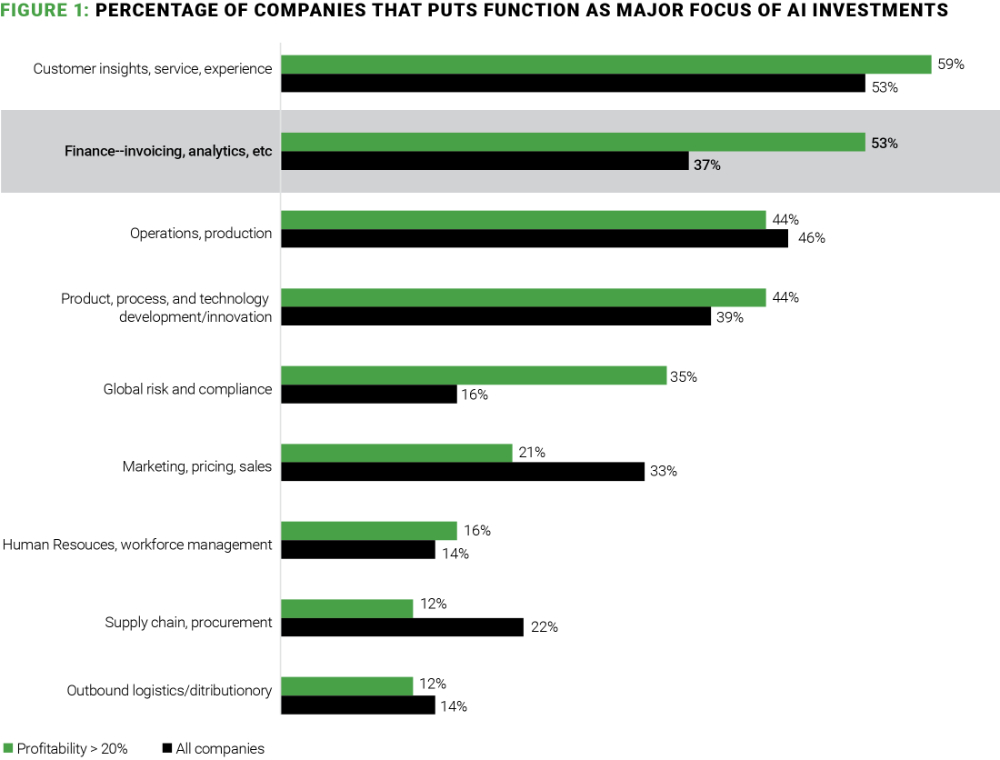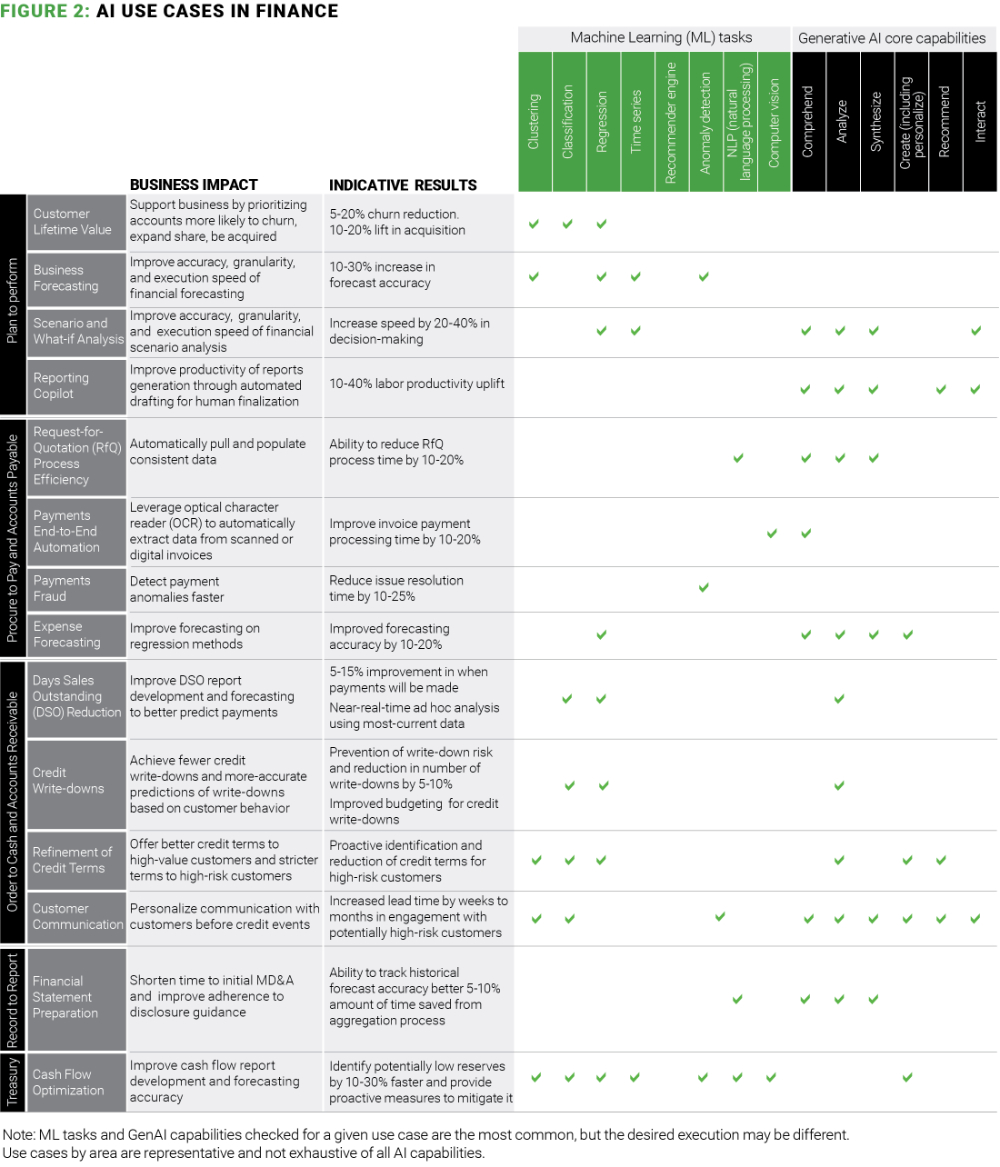- within Antitrust/Competition Law topic(s)
- with readers working within the Retail & Leisure industries
In the rapidly evolving landscape of business, the race to integrate artificial intelligence (AI) into every aspect of operations has reached unprecedented speeds. The surge, sparked largely by the launch of ChatGPT in 2022, has created among businesses a heightened sense of urgency to harness AI's potential to boost productivity, target new revenue streams, and reduce operational costs.
Since then, companies across various sectors have scrambled to develop AI capabilities, aiming to gain a competitive edge. As use cases become more defined and AI-driven business models get increasingly validated, the opportunity to develop and deploy AI solutions has never been more accessible. As the race for AI intensifies, data from the Artificial Intelligence Index Report 20241 shows that nearly 80% of Fortune 500 companies mentioned AI in earnings calls in 2023—an increase of 30% from 2022.
The AlixPartners Digital Disruption Index shows that many businesses are no longer merely experimenting with AI but are actively embedding it into their core strategies. Although some functions, like customer insights and marketing, have traditionally been at the forefront—particularly in such industries as retail and finance—automotives, industrial, and technology companies have emphasized operations and process improvement. Across the board, however, the most successful companies have coupled those AI investments with strong focus on the finance function. When we surveyed a group of executives whose organizations had more than 20% in net income profitability in the past year, we found that 53% ranked finance as a major focus of AI strategic focus and investment—16 percentage points higher than the average and just behind customer insight and service; the executives were also more than twice as likely to focus on enterprise risk—another finance-function activity. The same holds true for growth: 47% of the fastest-growing companies said finance is a major focus of their AI investments compared with 37% overall.
The most-profitable companies prioritize AI investment in finance and risk
Some executives may hesitate to prioritize finance for AI investments due to concerns about complexity, risk, and a perceived lack of immediate return on investment (ROI). Finance is often seen as a sensitive area in which the stakes are high—particularly regarding accuracy and compliance. The idea of automating financial processes with AI can seem risky, especially if an organization's data infrastructure is not fully mature. Often, finance is viewed as little more than a cost center, leading to underinvestment.
The ROI for AI in finance might appear less direct compared with customer-facing areas like marketing and sales, whose impacts on revenue are more immediate and measurable.
In fact, the opposite is true: When AI is applied to finance, the function can become a much more
effective strategic partner for the business—not just a historian that looks at the business through the rearview mirror, but a partner that can monitor activity in real time, can enhance forecasting, can improve speed to insight, and can reduce risk. In addition, organizations that underinvest in AI are missing out on efficiency gains that come from the automation of routine financial tasks and the freeing up of resources for more strategic initiatives.

Strategic advantages of leveraging AI in finance
The strategic value of AI in finance stands on four pillars, each pillar supporting one way that AI can create value for forward-thinking organizations.
1. Speed-to-insight and enhanced visibility
One of the primary reasons executives are investing in AI for finance is the promise of speed to insight. AI can process vast amounts of financial data in real time, thereby providing executives with timely and actionable insights. Such enhanced visibility leads to more-informed decision-making, which in turn enables organizations to respond more quickly to market changes and internal challenges.
For instance, AI-driven analytics can provide real-time updates on cash flow, thereby enabling companies to make strategic adjustments on the fly. AI-driven analytics can also be trained to issue early warning of late payments by customers or late or incomplete shipments by suppliers. That kind of agility has become increasingly necessary in today's fast-paced business environment.
2. Improved forecasting and consolidation accuracy
Accurate forecasting and consolidation are critical for any business. AI enhances those processes by analyzing historical data, identifying patterns, and predicting future trends with a level of accuracy that traditional methods cannot match. The use of AI in this regard not only improves financial planning but also helps organizations anticipate—and mitigate—risks.
For example, an AI-powered forecasting tool could analyze market trends, customer behavior, and even geopolitical factors to make more accurate revenue predictions. This reduces the margin for error and helps companies plan more effectively.
3. Reduced operational complexity and the integration of systems and processes
Financial operations' complexity can often overwhelm, especially for large organizations with multiple revenue streams and subsidiaries. AI streamlines financial operations by automating routine tasks and integrating connectivity across systems and processes to thereby reduce the need for manual intervention and lead to enhancement of overall efficiency.
Consider the use of AI in the automation of accounts payable and receivable processes. By automating invoice processing, AI can reduce errors, speed up transaction times, and free up finance teams to focus on more strategic tasks. When paired with predictive analytics that leverage your company's history and industry practices, AI can also proactively identify opportunities to optimize working capital.
4. Mitigating business risk through accurate public statements
In today's regulatory environment, the accuracy of public financial statements is more critical than ever. Inaccurate reporting can lead to legal penalties, loss of investor trust, and significant financial repercussions. AI can help mitigate those risks by ensuring that financial data is accurate, consistent, and compliant with regulatory requirements.
For instance, AI-driven tools can cross-check financial reports against industry standards and regulatory guidelines, flagging any inconsistencies before the reports get published. AI can also identify and review against a repository of relevant past case examples to ensure that appropriate language gets captured. The cross checking reduces the risk of errors and helps maintain an organization's credibility in the eyes of investors and regulators.
Building on these four core pillars, AlixPartners has identified areas in which AI can be most effectively applied across different finance functions and processes. By focusing on tailored end-to-end solutions that get integrated seamlessly into a company's workflows, we deliver AI in a way that meets an organization's unique challenges and enhances its overall finance capabilities.

The path forward in AI integration for finance
We believe that the finance function should be more than just a cost center; it should be an active strategic player in an organization's growth. By incorporating AI, the finance department can evolve into a hub of innovation and strategic insight, contributing meaningfully to broader business objectives. But to get there requires not just AI knowledge but also senior business expertise, including deep understanding of business process reengineering and a determinedly sharp focus on the delivery of tangible improvements in the P&L.
Six-part checklist to assess company readiness for AI in finance
Before embarking on the AI journey in finance, a company must take the essential step of assessing whether the organization is ready to maximize the benefits of this transformative technology. Here's a quick checklist to serve as a guide to whether the implementation of AI is right for your finance function:
| Checklist Step | Question | Illustrative Example |
|---|---|---|
| 1. Speed-to-Insight | Does your company take longer than eight business days to close month-end financials? | If your finance team often faces delays in finalizing its reports due to manual data reconciliation, AI can streamline the process by providing faster access to critical financial insights. |
| 2. Forecasting and Consolidation Accuracy | Are your financial forecasts often off target, or do you experience difficulties in consolidating financial data from multiple sources—particularly external ones? | If your organization has missed revenue targets due to inaccurate forecasting, the implementation of AI-driven tools can help refine those predictions by analyzing more variables and identifying patterns that humans might overlook. |
| 3. Operational Complexity | Is your finance team bogged down by routine tasks, such as manual invoice processing or data entry? | If your finance department spends a significant amount of time process invoices manually or closing the period, AI can help automate the workflow, reduce errors and increase efficiency. |
|
4. Risk Management and Compliance |
Are you confident in the accuracy and compliance of your financial statements? | If your organization has faced compliance issues or financial reporting errors in the past, AI tools can cross-check financial data against regulatory requirements and previous relevant case studies to reduce the risk of costly mistakes. |
| 5. Identifying Cost Reduction and Process Improvement Opportunities | Is your organization effectively pinpointing areas where costs can be reduced and processes streamlined? AI can help identify inefficiencies and suggest targeted improvements to drive down operational costs and enhance overall performance. | If your company is struggling to find cost-saving opportunities within its supply chain, AI can analyze spending patterns and process flows to highlight where the inefficiencies are, and recommend strategies for improvement, thereby leading to substantial cost reductions. |
| 6. Proactive Issue Identification | Does your organization have the ability to foresee potential financial issues such as cash flow shortages or delinquent payers before they escalate? AI can shift your finance function from reactive to proactive, thereby enabling you to correct problems before they affect your bottom line. | Traditional reporting often alerts you to issues only after they've occurred. For instance, if sales are down, you might not realize it until the end of the reporting period. With AI, however, you can predict customer ordering patterns and detect when expected orders are not being placed on time, which enables you to reach out proactively to handle potential issues before they result in lost sales and thereby help you retain customers and stay ahead of the competition. |
As AI continues to evolve and influence the business landscape, it becomes increasingly important to stay informed and adaptable. At AlixPartners, we are actively engaged in developing AI tools and strategies that support organizations in navigating the complexities of modern finance. Our focus is on helping businesses not only adjust to the changes but also take advantage of AI to enhance their finance functions effectively. By considering how AI can be integrated thoughtfully and strategically, you can better position your organization for success in a competitive and data-driven environment.
If your organization is just beginning to explore AI in finance or for broader business functions, taking a step back to develop a solid strategy is crucial. To help you get started, we recommend our AlixPartners Practice AI for CEOs guide, which offers practical insights on building a comprehensive AI approach from the ground up.
The content of this article is intended to provide a general guide to the subject matter. Specialist advice should be sought about your specific circumstances.





